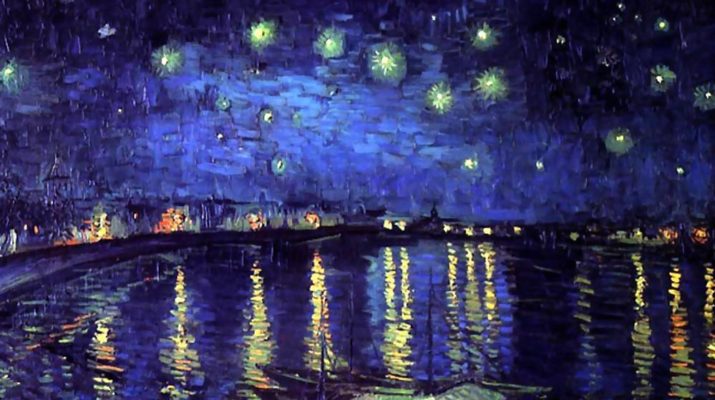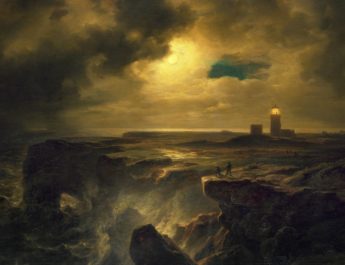Psalm 136:1-9, 23-26
Easter Vigil A
BibleHub
1 O give thanksA to the Lord,B for he is good,C
for his steadfast loveD endures forever.E
Notes on verse 1
A “give thanks” = yadah. From yad (hand). This is to throw one’s hands into the air in a gesture of praise. So, it is to praise, give thanks, or make a confession.
B “Lord” = YHVH. From havah (to be, become) or hayah (to come to pass, become, be). This is the name of the God of Israel, the self-existent and eternal one, the tetragrammaton. This pronunciation has been lost to time so “Lord” is generally used in its place.
C “good” = tob. From tob (to be pleasing, to be good). This is good, beautiful, pleasant, agreeable, bountiful, at ease. This word is used for goodness as a concept, a good thing, a good person. This can refer to prosperity and welfare as well as joy, kindness, sweetness, and graciousness. So, this is ethically good, but also enjoyably good.
D “steadfast love” = chesed. From chasad (being good, kind, merciful; may mean bowing one’s neck as is done in the presence of an equal for courtesy’s sake; so, if one in a superior position is treating you like an equal, that is what is captured here). This is favor, goodness, kindness, loving kindness, pity, reproach, or a good deed. When done by God to humanity, this is mercy/loving kindness. When done by humanity to God, it is piety.
E “forever” = olam. This is a long scope of time whether in the past (antiquity, ancient time) or in the future (eternal, everlasting).
2 O give thanks to the GodF of gods,G
for his steadfast love endures forever.
3 O give thanks to the LordH of lords,
for his steadfast love endures forever;
4 who aloneI doesJ greatK wonders,L
for his steadfast love endures forever;
Notes on verses 2-4
F “God” = Elohim.
G “gods” = Elohim. Same as “God” in v2. See note F above.
H “Lord” = Adon. From a root that means ruling or being sovereign. This is lord, master, or owner.
I “alone” = bad. From badad (to divide or be separated; alone, solitary, lonely, isolated, straggler). This is apart, alone, separation, body part, tree branch, except. It can also be a city’s chief.
J “does” = asah. This is to make, do, act, appoint, become in many senses.
K “great” = gadol. From gadal (to grow up, become great, become wealthy – to advance. The root meaning may be to twist in the sense of the process of growing). This is great, high, bigger, noble, old, marvelous. It can also refer to someone who is powerful or distinguished.
L “wonders” = pala. From pele (wonder, miracle, wonderful, marvelous thing). This is to be extraordinary, to arise, to be great or accomplish.
5 who by understandingM madeN the heavens,O
for his steadfast love endures forever;
Notes on verse 5
M “understanding” = tebunah. From bin (to discern, consider, attend to; distinguishing things in one’s mind or, more generally, to understand). This is understanding, discernment, discretion, intelligence, skill, fruit, an argument.
N “made” = asah. Same as “does” in v4. See note J above.
O “heavens” = shamayim. Root may mean being lofty. This is sky, the air, or heaven. It is in a dual noun form so this might refer to the part of the sky where the clouds move on the one hand and the part beyond that where the sun, moon, and stars are on the other hand.
6 who spread outP the earthQ on the waters,R
for his steadfast love endures forever;
7 who made the great lights,S
for his steadfast love endures forever;
Notes on verses 6-7
P “spread out” = raqa. 11x in OT. This is to beat the earth in a fit of passion. By analogy, it is to hammer something so that it is spread out or spread thin. By extension, it is decoratively overlaying something with metal.
Q “earth” = erets. Root may mean to be firm. This is earth, ground, field land, or country.
R “waters” = mayim. This is water, waters, or waterway in a general sense. Figuratively, it can also mean juice, urine, or semen.
S “lights” = or. From or (to be or become light). This is light, sun, sunshine, dawn, or daylight. Figuratively, it can refer to light from instruction, light of a face (that is to say one that is cheerful or finds favor). It can refer to prosperity or salvation; a light that guides, a light eternal from Zion.
8 the sunT to ruleU over the day,V
for his steadfast love endures forever;
9 the moonW and starsX to rule over the night,Y
for his steadfast love endures forever;
Notes on verses 8-9
T “sun” = shemesh. This is sun or toward the east. Its root may mean being brilliant. Figuratively, this could be a ray or an arch.
U “rule” = memshalah. 14x in OT. From mimshal (dominion, ruler, authority); from mashal (to rule, reign, govern, have authority, wield). This is to rule, govern, a ream, ruler, authority, dominion, forces.
V “day” = yom. Root may mean being hot. This is the day in a literal or figurative sense. It can also mean birth, age, daylight, continually or other references to time.
W “moon” = yareach. Perhaps from the same as yerach (month). This is moon.
X “stars” = kokab. Perhaps from the same as kavah (to prick, blister, burn, scorch). This is a star as shining, stargaze. Figuratively, can mean prince.
Y “night” = layil. Properly, this refers to light twisting away. It is used for night or midnight. Figuratively, this can mean adversity.
23 It is he who rememberedZ us in our low estate,AA
for his steadfast love endures forever;
24 and rescuedBB us from our foes,CC
for his steadfast love endures forever;
Notes on verses 23-24
Z “remembered” = zakar. This is to remember, to mark something so that it can be recalled, to be mindful of, to mention.
AA “low estate” = shephel. 2x in OT. From shaphel (to be low, sink, be cast down, put down, humble, or humiliate). This is a low condition or humble rank or place.
BB “rescued” = paraq. 10x in OT. This is to tear apart, break off, drag away, or crunch. Figuratively, it can mean to deliver.
CC “foes” = tsar. From tsarar (to bind, restrict, narrow, be cramped, an adversary). Properly, this is a narrow or constricted place. Figuratively, it can be trouble, a pebble, an enemy, anguish, or distress.
25 who givesDD foodEE to allFF flesh,GG
for his steadfast love endures forever.
26 O give thanks to the GodHH of heaven,
for his steadfast love endures forever.
Notes on verses 25-26
DD “gives” = natan. This is to give, put, set, offer. It is to give literally or figuratively.
EE “food” = lechem. From lacham (to eat, feed on). This is bread, food, loaf. It can refer to food more generally for people or for animals.
FF “all” = kol. From kalal (to complete). This is all or every.
GG “flesh” = basar. From basar (being a messenger, publish, carry preach; properly, this is being fresh, rosy or cheerful as one bearing news). This is flesh, the body, fat, skin, self, nakedness, humankind, or kin. It can also refer to private parts.
HH “God” = El. Related to “God” in v2. See note F above.
Image credit: “Starry Night over the Rhone” by Vincent Van Gogh, 1888.




